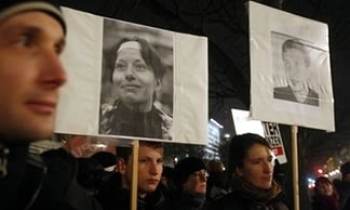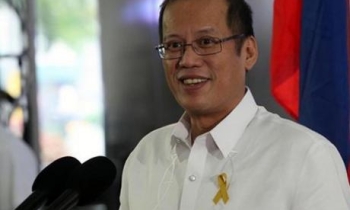EVERY waking moment reminds Frank Gardner of what happened to him in Saudi Arabia. Shot six times four in the small of the back Gardner thinks of himself as fortunate to be paralysed rather than dead.
But the few seconds that it took to discharge those bullets never leave the 44-year-old. The images spool, in an endless loop, across his memory like a strip of film.
He can see himself dashing to the airport to fly to Saudi, telling his wife Amanda, who wanted him to pack a flak-jacket: "I'm not a flak-jacket journalist." He can hear his wife's reply. "So what are you going to say when terrorists put a gun to your head?"
He can see himself travelling to the restive Al-Suwaidi district of Riyadh with cameraman Simon Cumbers, following the murder of 22 Westerners by al-Qaida-inspired terrorists.
And he can see himself talking into Cumbers' camera as a young Saudi looks straight at him, calls out "Assalaamu aliekum" (peace be upon you) and then reaches in to his pocket.
Gardner remembers yelling back in Arabic: "No don't do this", knowing that it was already too late. The first bullet passed straight through his shoulder. The second struck his leg. And, as he sought to make a desperate escape, he ran into a second group of Islamist gunmen. He glimpsed faces of pure hatred as bullets rained into his back.
Cumbers died, Gardner played "dead". He remembers lying on the ground, hearing the click of a camera as someone took his photograph, and being "petrified" that the terrorists would return to "finish me off".
And he remembers his body protruding from the back of a police car as it rushed him to hospital. Now, almost two years on, he sits in his wheelchair and endures almost constant physical pain (as well as the prospect of his umpteenth operation). Each day the father-of-two faces the emotional agonies of his cameraman's death, and his own limitations.
When his daughter wants to run in the park, he wheels himself there "like an 80-year-old growing old". No wonder Gardner can't forgive. Certainly he'll never forget.
Nothing, however, can dissuade Gardner from using his expert knowledge of the Middle East and its politics to explain the causes and threats of terrorism. As the BBC's security's correspondent, he's unsure whether he would ever go back to Saudi because of the worry that it would cause his parents.
But his new book, Blood & Sand, isn't just an autobiography. It's an attempt to provide an insight into the impact of the Middle East on the rest of the world.
"Most of the Saudis I have met have been kind, hospitable and open-minded. But there are some very unpleasant, bigoted people there who consider all non-Muslims to be lesser beings," he says. "I see it as a personal mission not the BBC's to give people a better understanding of the more positive aspects of the Islamic faith.
"A lot of the problem is that Abu Hamza, the Muslim cleric at Finsbury Park mosque who has been jailed, was viewed, by many, as the face of Muslims in this country. There is a big difference between radical Muslims like Hamza and mainstream Muslims who are committed to fighting terrorism in all its forms.
"Muslims are a growing minority of the British population and we need to understand their culture."
This, says Gardner, is particularly relevant in light of the July 7 suicide bombers who hailed from West Yorkshire. He fears there will be other such attacks, given that there exists a tiny minority who want Britain to become an Islamic state. And the continuing presence of US and British troops in Iraq will only aggravate current tensions.
"Iraq has been pretty much a disaster. George W Bush and Tony Blair could, perhaps, have got away with the invasion if they had planned the occupation properly. But their failure to do so has let everyone down," says the journalist.
"There have been so many strategic mistakes. My children could have planned that occupation better. Saddam Hussein was only ever a threat to neighbouring countries. Now the West finds itself compromised on the future of Iran, which could pose a threat to world security if it was to develop nuclear weapons."
Gardner has a lifelong interest in Middle Eastern affairs. This stemmed from an early encounter on a London bus with Sir Wilfred Thesiger, the veteran Arabian explorer and author.
His childhood also included a bust-up with a young Prince Andrew the pair attended the same Kensington gym. "Does that mean I'm going to prison?" was Gardner's response when admonished by his mother.
This early enthusiasm led to Gardner learning Arabic at Exeter University, before travelling throughout the Middle East and working in banking. He never missed an opportunity to immerse himself into the culture for example, spending Ramadan with a family in Cairo to learn more about the Muslim holy month.
This led to a successful career in investment banking. "I remember once saying to friends in the Middle East that I would like to do something memorable. Being shot was not not what I had in mind," he said.
But it was when he lost his job in 1995 that Gardner trained as a journalist. The problem was getting a foothold in the Corporation. "Ten years ago, the BBC was completely blinkered," says Gardner.
"If you didn't go through the correct channels, you didn't get into reporting. I worked my way up to become an assistant producer, but did not want to become pigeon-holed. The only way I could do that was to go out and offer my skills to them. That's what I did. Speaking Arabic was a huge advantage."
Gardner's first foray in to television came in 1995 when a terrorist was convicted of attempting to blow up the World Trade Centre in 1993. No one, apart from Gardner, had even heard of the Egyptian in question. Within minutes, he was speaking on BBC World described as a Middle East analyst.
His knowledge, and contacts, gleaned from banking, knew no bounds. He even persuaded a Saudi prince to be interviewed during Tony Blair's visit to Riyadh after September 11. Packed in his bag was a miniature digital camera and telescopic tripod.
"I've always liked working on my own or in very small groups. I believe journalists should do their own research. I shuddered when I heard that an American journalist had a back-up team of 30 in tow for a recent report; it hardly puts their subject at ease", he says.
He was accompanied on his fateful trip to Saudi by a "minder" from the Interior Ministry, such were the dangers. He steadfastly believes that neither he, nor Cumbers, was "set up" by their minder. He believes that they were the innocent victims of a terror cell intent on killing westerners. The fact that five members of the gang that attacked the pair were killed in a subsequent shoot-out, is of little comfort.
Although Gardner's life was saved by the presence in Saudi of the renowned South African gunshot specialist, Dr Peter Bautz, the bullet wounds to his back mean that he faces a lifetime of suffering.
"I was in denial for a long time it took a long time for it to sink in that life would never be the same," he admitted.
The physio sessions have been endless. And even though Gardner has learned to walk with callipers he did so when he received his OBE from the Queen last October such aids are impractical for him, as he cannot answer a mobile phone while using them.
"I'm very lucky with the job that I do, though it is a grisly area. It's my knowledge and contacts that are required rather than my ability to jump into helicopters," said Gardner. It was why he was still one of the BBC's most prominent correspondents following the July 7 attacks in London.
The fact that he has been a victim of international terrorism brings a human dimension to his reporting. "I have surprised myself that I am not more angry about what happened in Riyadh," said Gardner. "Just how pointless and senseless was this attack? It was so counter-productive.
"It was utterly cowardly to pick on two defenceless non-combatants who had taken the time and trouble to travel to Saudi to explain events to a global audience. That my reward should be several bullets in the guts, and a lifetime of paraplegia, is immensely unfair. But what's done is done it could have been worse."
The irony is that Gardner had a miniature copy of the Koran in his pocket when he was shot. He gave copies to his Muslim hosts as a gesture of goodwill and to symbolise his understanding of their faith.
Yet, such gestures count for nothing in the minds of international terrorists. Frank Gardner knows. He has the scars to prove it.









